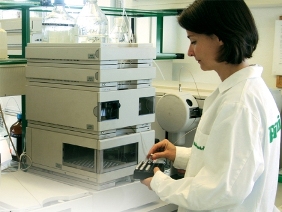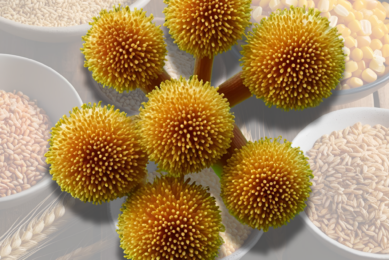Biomin survey – mycotoxins remain ubiquitous problem

Mycotoxins remain an ubiquitous problem as 89% of the analysed samples show the presence of at least one mycotoxin as was revealed in the just released Q2 results of Biomin Mycotoxin Survey. The data helps to assess the risk level incurred by the use of commodities from certain regions.
In the period between April and June 2011, Biomin on a global scale analysed a total of 804 samples and 2,867 analyses were carried out for the most important mycotoxins in terms of agriculture and animal production – aflatoxins (Afla), zearalenone (ZON), deoxynivalenol (DON), fumonisins (FUM) and ochratoxin A (OTA).
Samples tested were diverse, ranging from cereals such as corn, wheat, barley and rice to processing by-products, such as soybean meal, corn gluten meal, DDGS and other fodders such as straw, silage and finished feed.
The table below gives an overview on the distribution of mycotoxins amongst different world regions.
Area | Mycotoxin presence (%) | ||||
Afla | ZON | DON | FUM | OTA | |
North America | 38 | 17 | 38 | 67 | 18 |
Central America | 100 | 0 | 100 | 100 | 0 |
South America | 17 | 35 | 12 | 92 | 13 |
Northern Europe | 100 | 71 | 86 | 0 | 1 |
Central Europe | 0 | 65 | 82 | 70 | 42 |
Southern Europe | 54 | 15 | 12 | 62 | 62 |
Middle East | 29 | 0 | 0 | – | 71 |
Africa | 0 | 0 | 100 | 100 | 0 |
North Asia | 22 | 62 | 80 | 49 | 30 |
South-East Asia | 8 | 38 | 39 | 64 | 32 |
South Asia | 86 | 3 | 24 | 55 | 52 |
Oceania | 9 | 29 | 41 | 25 | 8 |
Average positives | 31 | 48 | 62 | 63 | 32 |
Ubiquitous problem
It is obvious that mycotoxins are an ubiquitous problem as 89% of the analysed samples show the presence of, at least, one mycotoxin.
The presence of more than one mycotoxin in 53% of the samples raises the attention to the problem of synergistic effects caused by multiple mycotoxins in animal feeds.
This is the second of 4 reports to be released this year. More detailed figures can be found on the Biomin website as well as past survey results.











